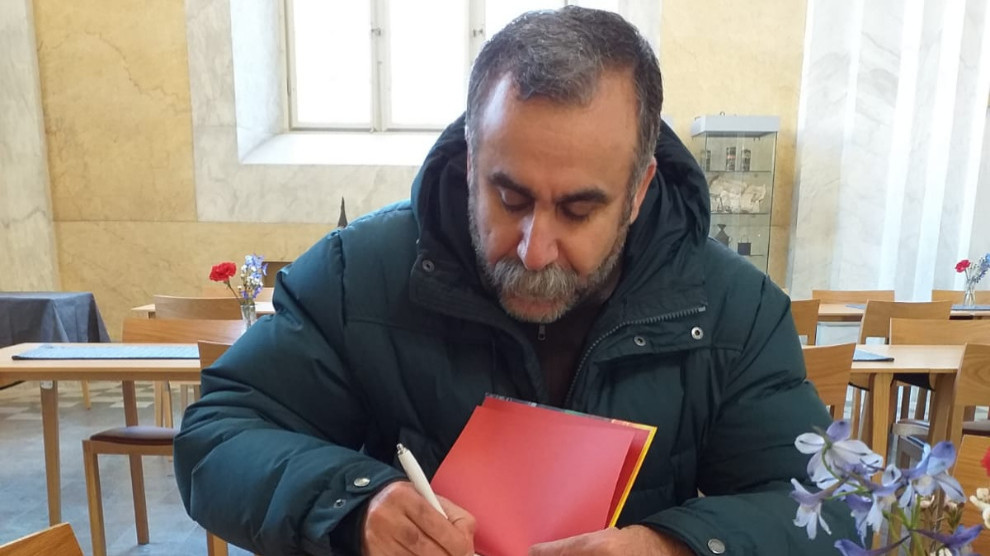Mesopotamian Civilization book sheds light on the Syriac problem
Küçükaslan said: “With this book, I want to leave a comprehensive historical document to our people, their historical situation and the Kurdish, Turkish, Arab, faith groups.
Küçükaslan said: “With this book, I want to leave a comprehensive historical document to our people, their historical situation and the Kurdish, Turkish, Arab, faith groups.

Yaşar Küçükaslan's book “Mesopotamian Civilization” sheds light on the role of Mesopotamia in the development of humanity and the problems of Assyrian-Syriac-Chaldeans from past to present.
In the foreword of the 834-page book published by Arjovi Publishing House, it is underlined that Assyrian-Syriac-Chaldean people are the current representatives of civilizations such as Sumerian, Akkadian, Babylonian, Assyrian, Kalde and Aram in Mesopotamia:
“Although these people have separate churches, they have a common language called modern Aramaic. Western and Eastern Syriacs are still alive. At one time Aramaic was the lingua Franca of the whole Middle East, the common language of agreement. The language Jesus spoke was Aramaic. And this language was once spoken from India to the Uighur land, to China. It moved from the eastern church to the far lands. The Mongol Empire established diplomacy with the West through them. They carried Greek classics into Arabic and led to the Arab renaissance.”
Küçükaslan, who lives in Sweden, told ANF that the Assyrian-Syrian-Chaldean culture should be protected as a cultural heritage of the whole humanity, it passed through the Armenian genocide in 1915, and the relatives of those who survived the genocide of the colonial countries in the region, especially Turkey, were forced to leave their land.
In his book, Küçükaslan said that he tried to explain the Syriacs from the Sumerians to the present day in chronological terms in a historical and social context.
Küçükaslan said: “With this book, I want to leave a comprehensive historical document to our people, their historical situation and the Kurdish, Turkish, Arab, faith groups.
Küçükaslan said: “In my book, I argue how the Turkish state was built on the genocide of 1915, how a fake liberation war tale was invented with the declaration of the racist, fascist and chauvinist Turkish state, and how a Kemalist left was created in connection with the Turkish sovereign race.”